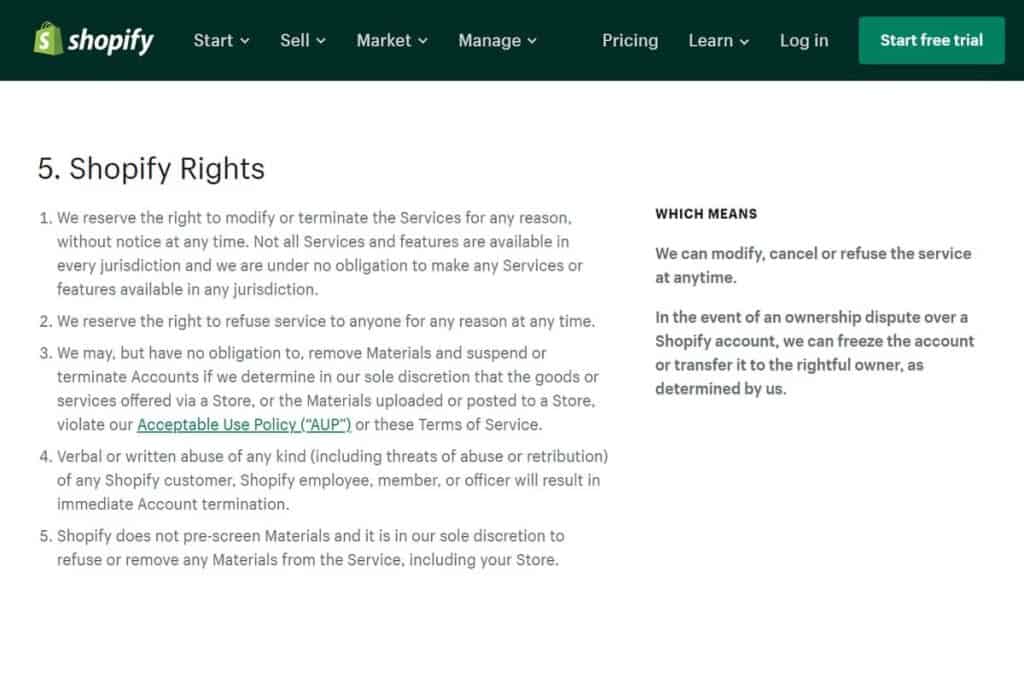October 23, 2021
WooCommerce vs Shopify: Which is Better for Website Design in Singapore?

If you are looking to start a website design in Singapore, here is a breakdown between WooCommerce and Shopify in 2023.

Reed Tan
Chief Strategist
327
shares
When comes to ecommerce stores, two of the most popular options today are WooCommerce and Shopify.
Research have shown that WooCommerce powers almost 40% of online stores in Singapore and is definitely the most popular ecommerce platform today. However, Shopify is no slouch either, accounting to almost 20% of the online stores in Singapore last year.
However, which platform is better for your business?
If you are looking to start a website design in Singapore, here is a breakdown between WooCommerce and Shopify in 2024.
Pros and Cons of WooCommerce over Shopify
1) Owning vs Renting

When you build your store on Shopify, you don’t really own your store on Shopify.
In a way, you are renting it. And like any rental business, you need to pay a monthly rental fee to Shopify based on your usage.

And just like any landlord, there are terms and conditions where you have to comply in order to rent.
Shopify have the right to terminate your services for any reason without notice at any time (screenshot as shown above) which includes holding of your funds. However, as long as you comply to their terms and conditions, there should not be any problems.
Building your store with WooCommerce, on the other hand, is akin to building your own house. There are no rules you have to comply and you have full rights to your eCommerce store.
Winner: WooCommerce
2) Ease of Use

Just like a rented apartment, Shopify has everything you need.
It lets you focus on your business by taking away most of the administrative work of managing a website.
This means, unlike WooCommerce, you don’t need to spend time on handling different bills from different vendors, maintaining updates or managing web hosting. The only caveat is that you will be locked in a system that doesn’t allow much customization.
In addition, it is notable that Shopify has a more polished interface compared to WooCommerce since it is specifically designed for eCommerce.
Winner: Shopify
3) Design Flexibility

Shopify offers over 100 pre-built themes—both free and premium.
The overall vibe for Shopify themes is usually clean, sleek and polished. Since they are designed specifically for eCommerce, they usually have good UX/UI designs for their checkout pages.
However, if you prefer a custom Shopify theme, the development cost is usually much more hefty compared to using default Shopify themes.

On the other hand, there are more than 30,000 themes on WooCommerce and they allows much more flexibility in their design.
If you need a certain website design, you will most likely be able to achieve it with WooCommerce.
However, we definitely recommend you engaging a good website design agency in Singapore. Due to its customizable nature, it is possible that your WooCommerce could end up badly developed with subpar user experiences.
Winner: Even (Depends on what you need)
4) Functionalities & Customization

Shopify is absolutely fantastic for starters. Depending on your Shopify plan, it is an one stop solution that comes in-built ecommerce tools such as abandoned cart recovery and advanced reports.
If you need additional functionalities, there are more than 6,000 publicly available apps across the Shopify App Store. However, most of them are paid plugins and even if they are free, they come with very limited functionalities.
Open Source Platform
On the other hand, WooCommerce is an open-source eCommerce platform built for WordPress. Unlike Shopify, it is not limited only to eCommerce functionality. You can basically add any functionalities on your website such as SEO plugins, automation tools and even forum capabilities.
At the moment, there are more than 60,000 plugins on WordPress library, we have yet to include 3rd party plugins sold on global marketplaces such as Envato. By any chances that you are unable to find a plugin that suits your need, you can always engage a plugin developer to create a plugin that suit exactly what you need.
Winner: WooCommerce
5) Operating Cost

With convenience, comes with cost.
As mentioned earlier, Shopify charges a monthly ‘rental’ fee for its services, ranging from usd29 to usd299. The entry-level plan ‘Shopify Basic’ provides core e-commerce functionality, however it doesn’t comes with certain features such as professional reports and courier shipping which can be crucial for your business.
If you are running lead generation campaigns in Singapore, we highly recommend you to upgrade to ‘Advanced Shopify’ which offers advanced reports.
However, monthly subscription fees for Shopify can be pricy, ranging from usd 29 to usd399 monthly.
On the other hand, WooCommerce is inherently free. All you need to do is to pay for web hosting fees which generally starts from usd10 monthly depending on your needs.
Monthly Fees for Plugins and Apps
In addition, Shopify apps are often much more expensive than WordPress plugins, amounting to amounting to hundreds of dollars every month. The hefty cost of these add-ons usually discourage business owners who wish to extend the store beyond the basic functionalities.
Due to the mentioned reason, Shopify becomes much more expensive over time.
Winner: WooCommerce
Key Takeaways

End of the day, the choice depends on what you need.
Shopify is great for starting business owners who wish to set up a simple store fast without any hassle. If you want everything to be set up for you, Shopify is the perfect way to go.
WooCommerce is more suitable for mature business owners who need more advanced features and customization. However, because of its customizable nature, you need to engage the right website design agency to create the optimized user experience.
Additional Thoughts…
If you have a great relationship with your landlord, everything will be fine. But if you’re going to invest time and effort making your home as nice as it can possibly be, wouldn’t you rather do that to a home you own?
The truth is, it doesn’t matter which platform you choose. If you can’t generate leads for your business in Singapore, nothing else matters.
What do you think? Share your thoughts in the comment section below.
327
shares
Need Help?
Just drop us a message if you need help in marketing your business.
